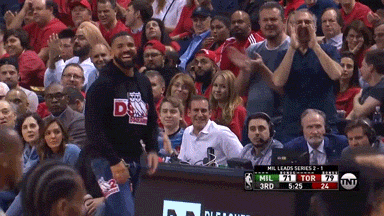sidsid wrote:ATLTimekeeper wrote:sidsid wrote:
What made these offers fairly equivalent is the lack of blue chip young talent (and why OG didn't need to be in them). Without that, haggling over an extra first or some role player isn't breaking a deal if you're motivated against a specific offer.
Jrue/Trent/Herro are only there to generate pick assets. You can easily talk yourself into believing the Bucks far off picks will be far more valuable than the Heat's. There's your core value, and you can walk away happy.
The final offers were roughly equivalent, but Miami's available cache could have toppled anything Milwaukee could have come up with. They could add prospects (Jovic, Jacques) and picks and they included FRPs, not just swaps. Swaps are potentially high value, but also can end up as nothing at all. They can't be re-packaged.
Cronin was trying to bait Masai and Riley, and both thought they were negotiating against each other. In the end, Dame's agent should have convinced Riley to pitch in, either by hinting that there were other bids beyond Toronto, or just explicitly stating it.
Spooking the Bucks and not leaving yourself an out can also be a way to lose your job as an agent. Anyway, this is mostly on the Heat, who basically have no window left and should have jumped on this more forcefully.
And this will always be the issue with trades. You can math out what you believe is a much better offer, but only the trading team matters.
I don't think this is on the Heat, the Heat's purported deal would have been stronger in the end (or maybe equal depending on the coming Jrue trade) but PDX's FO and Dame had some serious stuff going on between them, and Portland made an example of Dame. I can see it from both sides, they both certainly made mistakes.
Crazy to me, PDX has the same issue as Toronto in attracting FA's, if it was tough before, going to be even tougher now.
On an aside, if Jrue was a few years younger, I'd trade OG for him.
























